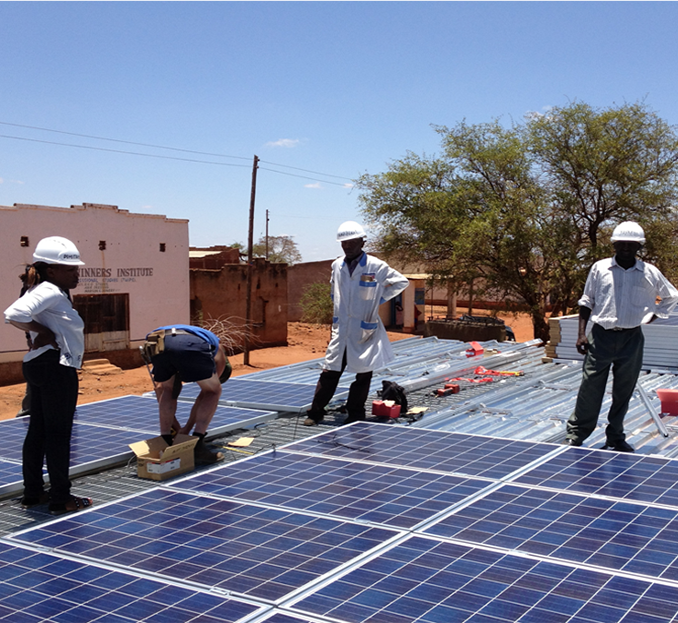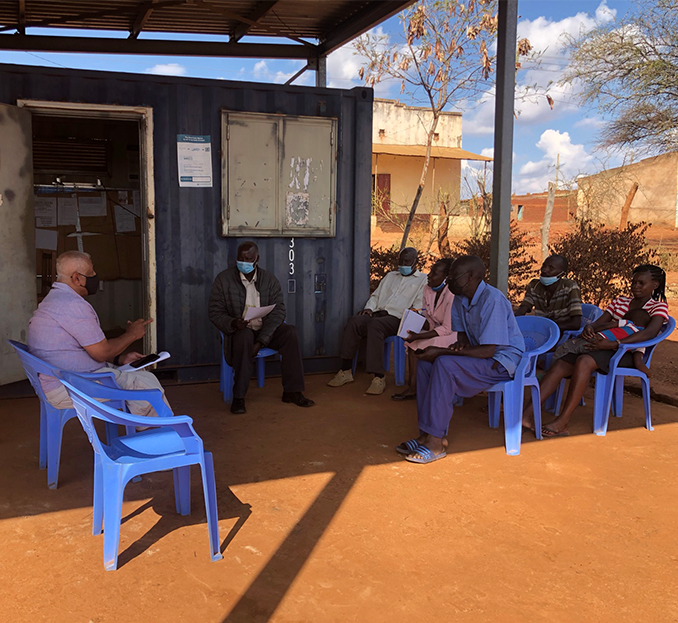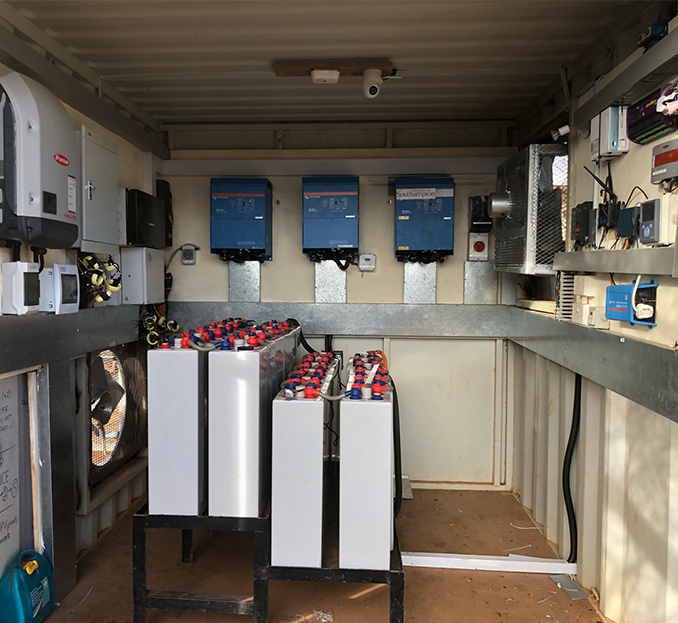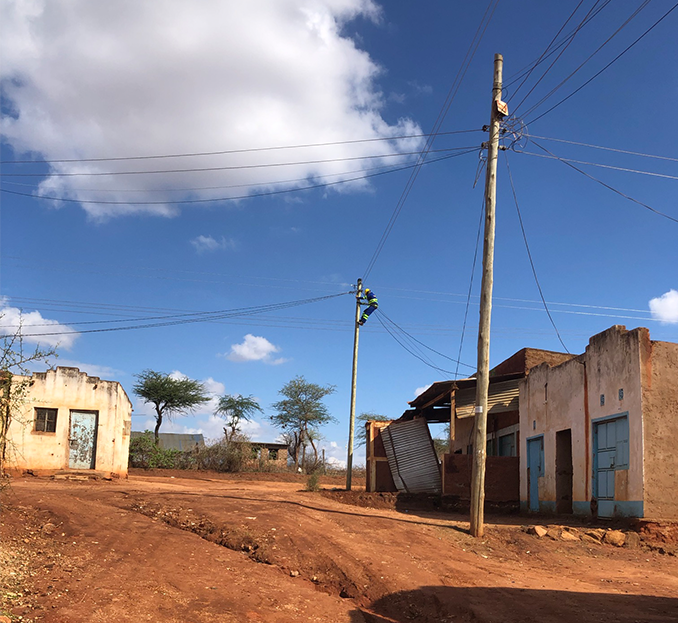Mini grid operations and networks
Installation of six community managed PV mini grid systems
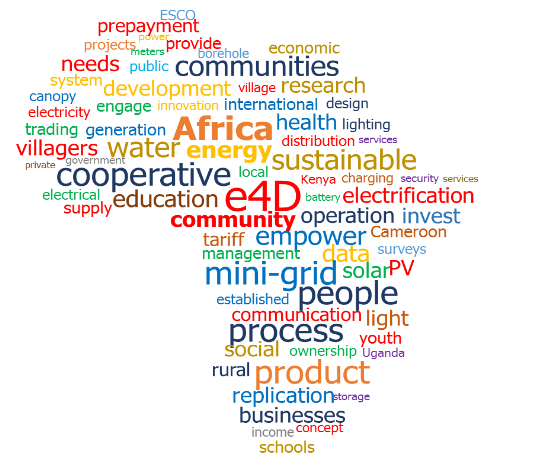
To date, the e4D programme has installed six community managed solar photovoltaic (PV) mini grid systems in Kenya, Uganda and Cameroon with more in the planning. The e4D research and development programme has been extended to study and explore the operation and resilience of local mini grid networks, including their appropriate transition to the national grid connectivity (click here for the e4D publications & downloads).
The modular solar PV driven mini grids are used to supply power to village centres where connected consumers also act as conduits to provide services including electrical charging facilities for non-connected consumers. Our studies include consumption profiles, optimisations and cost of energy at different community applied tariffs.
These mini grids act as learning vehicles to explore their resilience in lone operation and how to optimise them. The work also addresses strengthening mini grids’ capacity by studying two mini grids connected together as a network to form localised grids, supporting top tiers of electricity access. In addition, work also addresses connecting mini grids to the national grid studying their in-situ operation. This work is conducted under the ‘FORTIS UNUM (Stronger As One): Innovation in Mini Grids and their Networks’ project which also addresses multiple clusters of networks connected together, working jointly and whilst connected to national grid.
Click on one of the mini grids below to find out more about the system.
Kanyegaramire
Kyenjojo District, Uganda
Upgraded to 56kWp, providing a platform for e-cooking & e-mobility
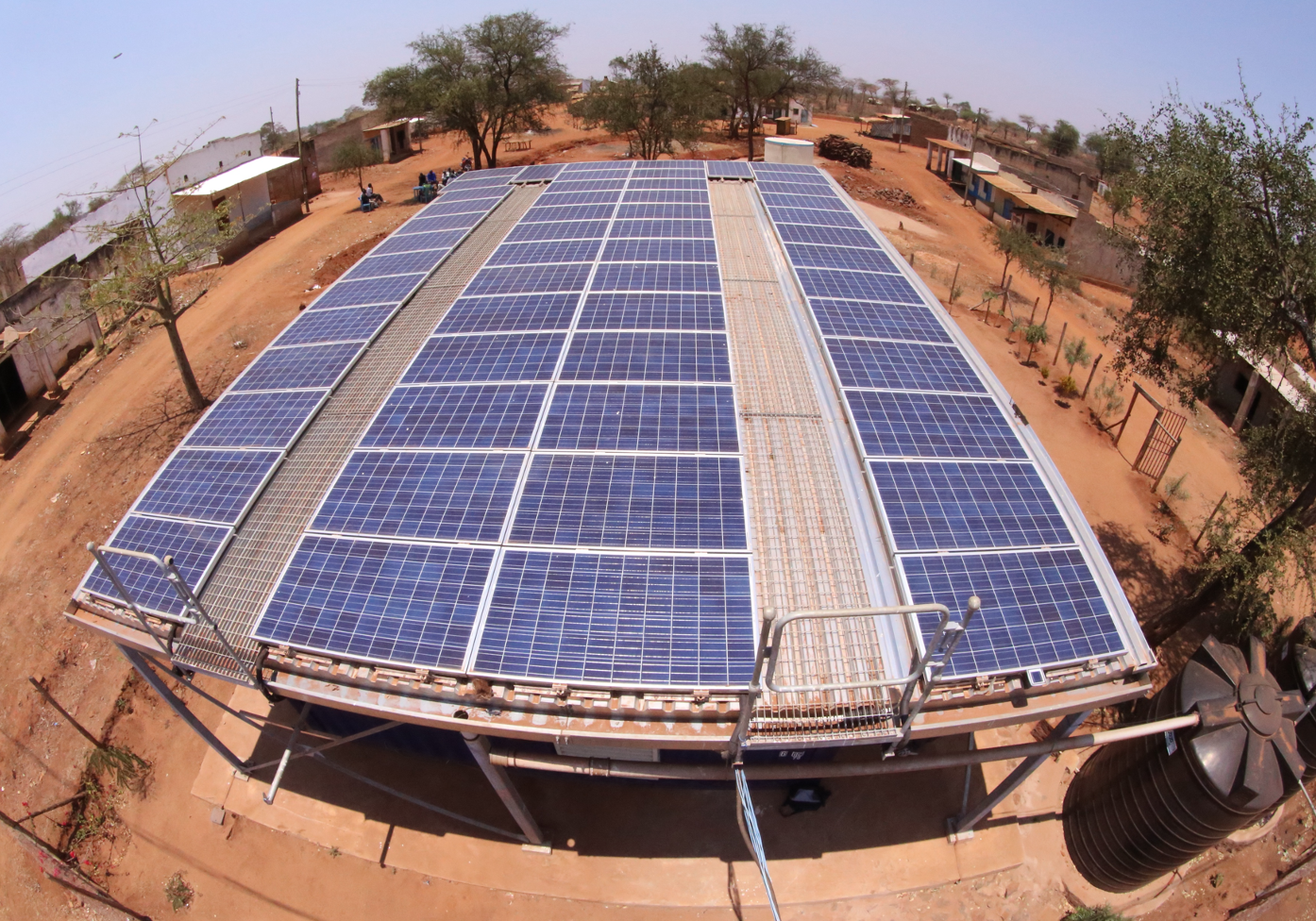
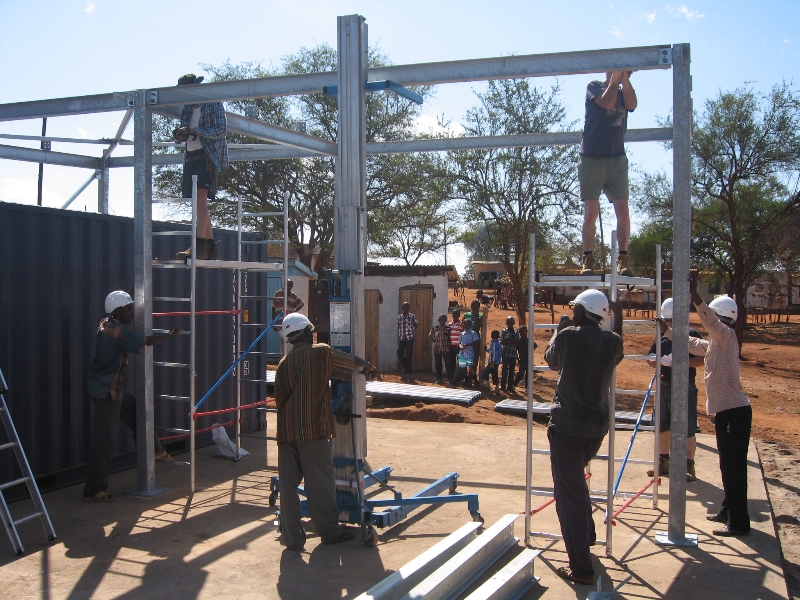
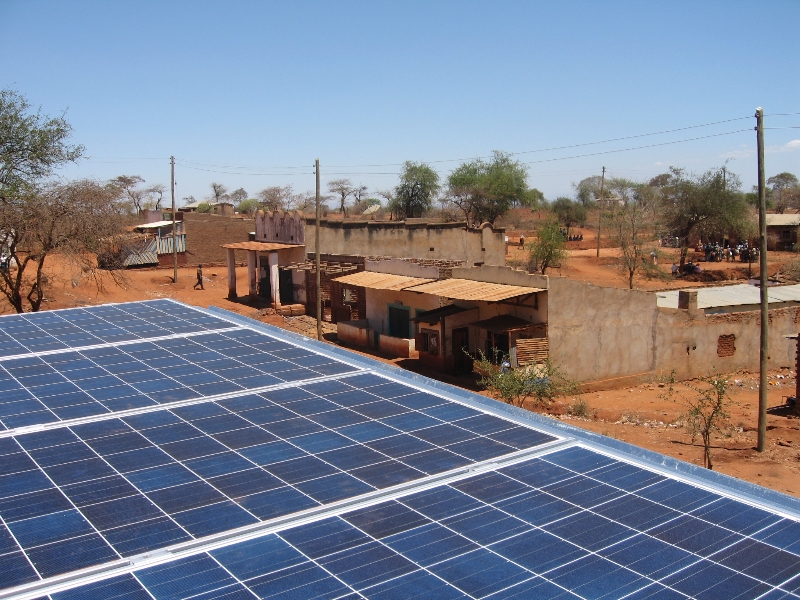
Kitonyoni
Makuenui County, Kenya
Kenya’s first grid-connected solar PV mini grid
13.5 kWp photovoltaic solar plan constructed in September 2012 | 38.4 kWh battery storage | Three 10kVA inverter-chargers | One 8.2 kVA grid-tie inverter | Connected to Kenya Power Distribution network October 2021
Kitonyoni is an off-grid rural market village in Makueni County, Kenya. The Energy for Development (e4D) Network worked closely with the villagers to determine their needs, aspirations and goals with respect to electrification and business. This activity is supported by the local and national government in Kenya.
To meet these requirements a business and community model was developed. e4D’s goals are to establish an economically sustainable approach, whereby the community contributes to the project and is responsible for the operation and maintenance of the plant. Income is generated for the cooperative through share ownership and local sales of electricity, which also finances capital cost.
Together, e4D engineers, local contractors and villagers were able to assemble the 13.5 kWp photovoltaic solar plant within one week in September 2012. The premise of the modular design is to make it easy to replicate and resize to each village’s requirements.
Benefits to the community
- Up to 3000 local people can now benefit from electrical services. The school, health center and 50 businesses have round-the-clock stable electricity, allowing them to provide services such as food refrigeration, lighting and phone and battery charging facilities. The health centre and primary school have also both measured improved performance over the last 3 years.
- Rechargeable LED lanterns are sold by the cooperative to individual households.
- The solar plant is operated and maintained by the local cooperative, creating employment and providing economic revenue as well as social and humanitarian benefits to the local population.
- Kitonyoni does not have a water supply. The solar canopy also acts as a rain collector during the rainy season. The collected water is stored for use throughout the year.
- Over the lifetime of the Kitonyoni solar plant, land prices have increased, business income has increased, there has been an increased level of construction in the market as well as increased level of services offered to the community. There has also been a newly built maternity unit and staff quarters for the local health centre staff.
Click here if you wish to read more about the first year of the project.
Kanyegaramire
Kyenjojo District, Uganda
13.5 kWp photovoltaic solar plan constructed in August 2015 | 38.4 kWh battery storage and two 5kW inverter chargers | Upgraded to 56 kWp in 2024 | 155 kWh Lithium-ion battery | Plan for interconnection with Kyamugarura mini-grid 3km away
The project is located in the West of Uganda in Kyenjojo district, only 5km from e4D’s other Ugandan installation in Kyamugarura. Both projects are currently registered as one cooperative society.
The project is joint funded by Energy for Development (e4D), who provided the generation costs, and the Rural Electrification Agency(REA), Uganda, who provided the civil work and distribution grid.
Benefits to the community
- Up to 500 local people in the community can benefit from electrical services, with the eventual aim of creating a cluster of mini-grid projects in the local area.
- The school, health center and 100 businesses have round-the-clock stable electricity, allowing them to provide services such as food refrigeration, lighting and phone and battery charging facilities.
- Rechargeable battery packs are being sold by the Co-operative to individual households for lighting and other appliances.
- The solar plant is operated and maintained by the local Co-operative (registered in accordance with Ugandan law), creating employment and providing economic revenue as well as social and humanitarian benefits to the local population.
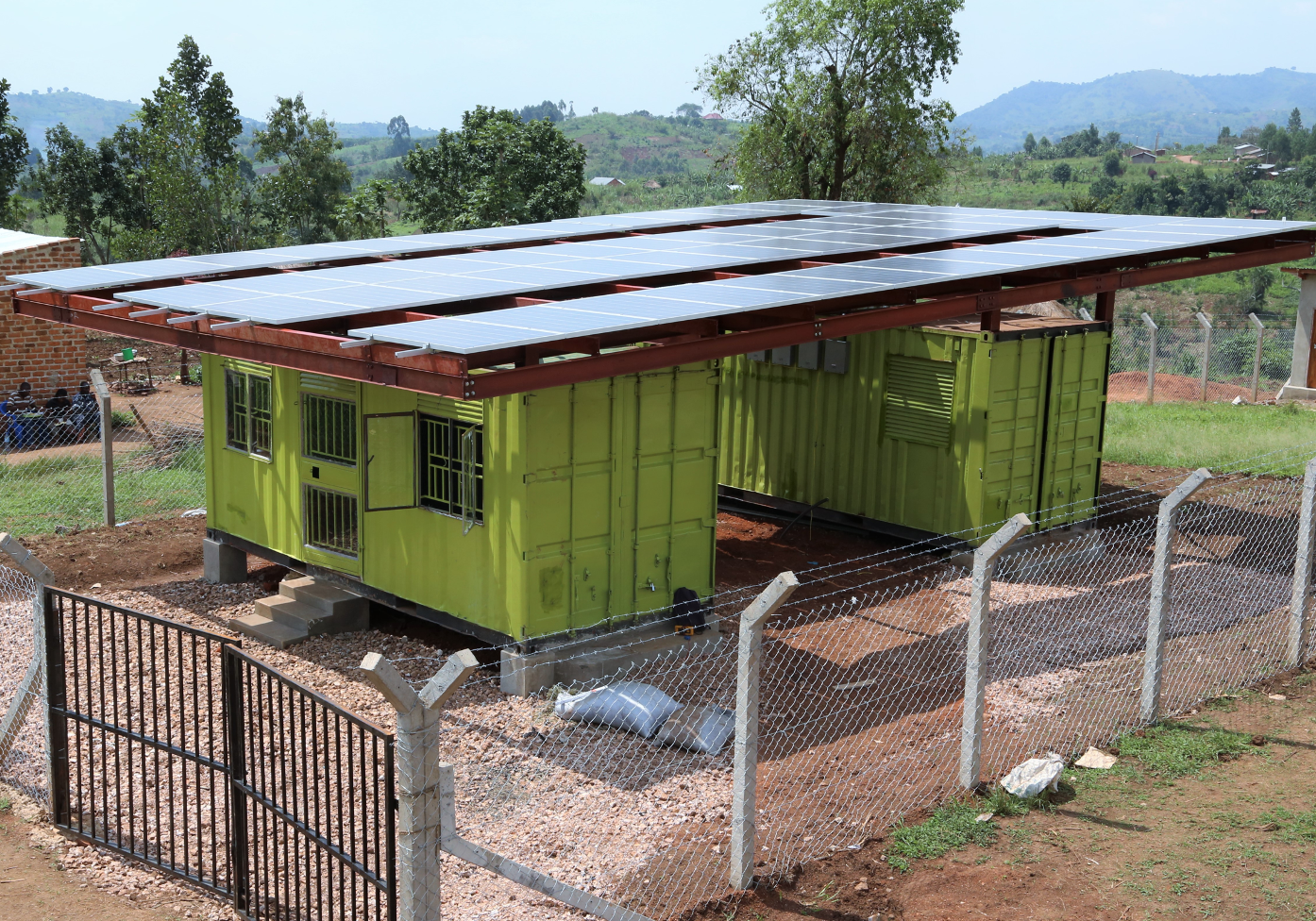
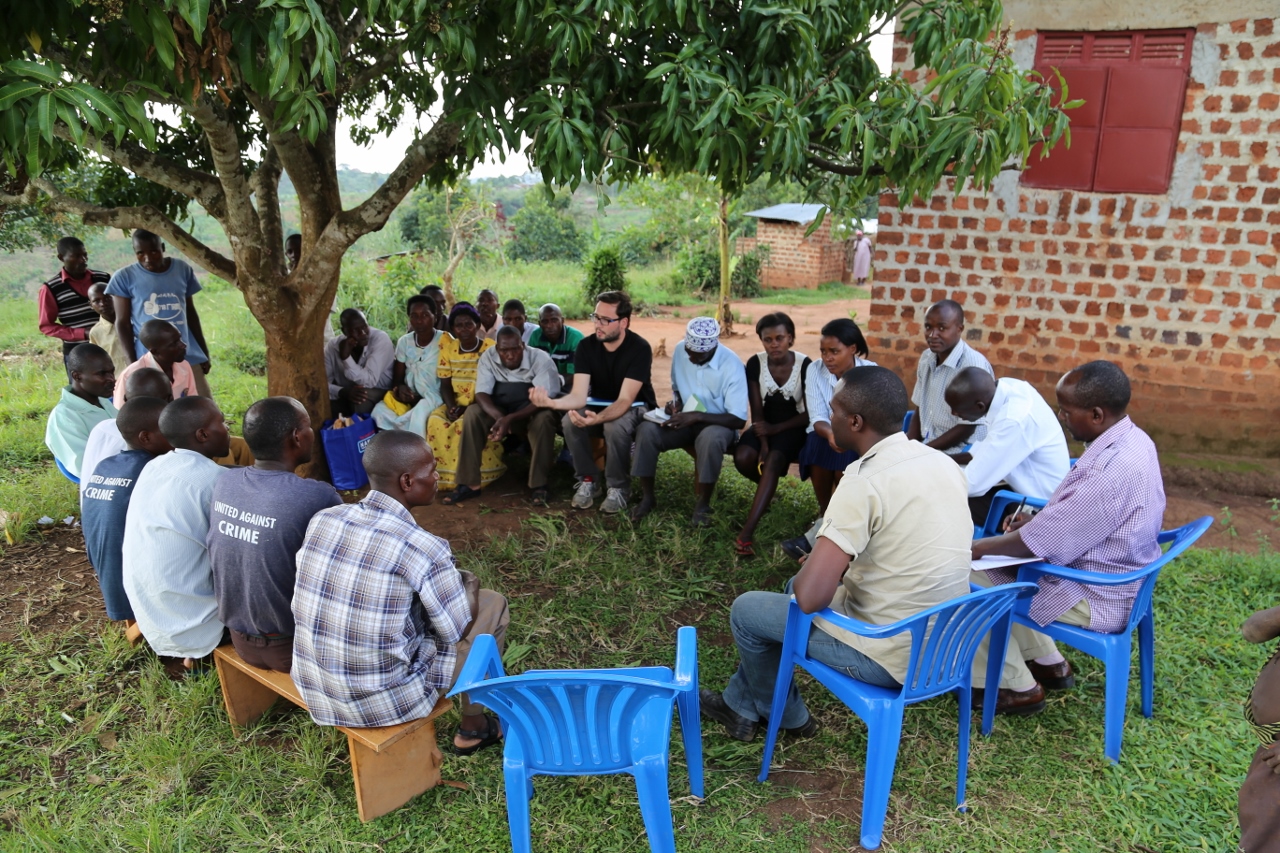
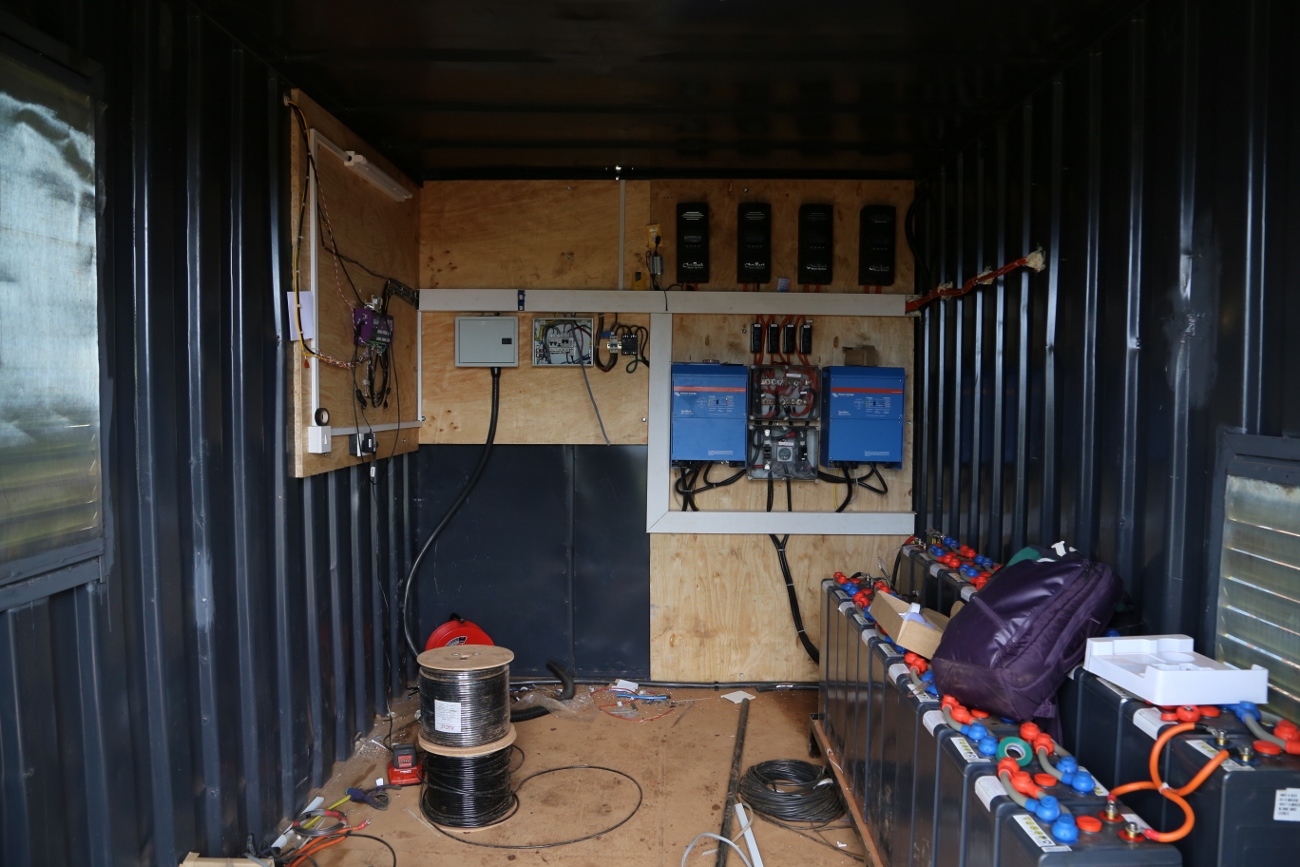
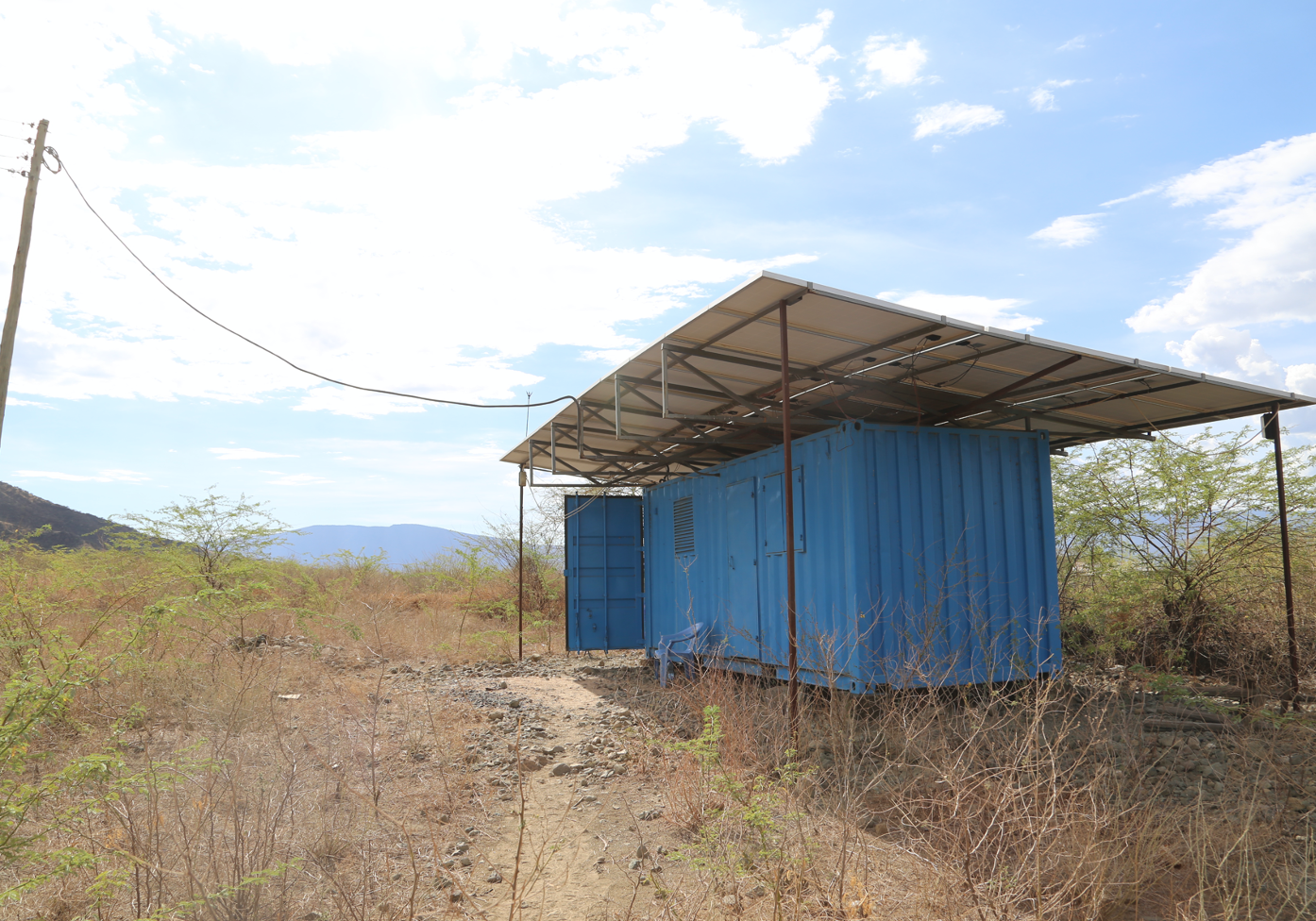

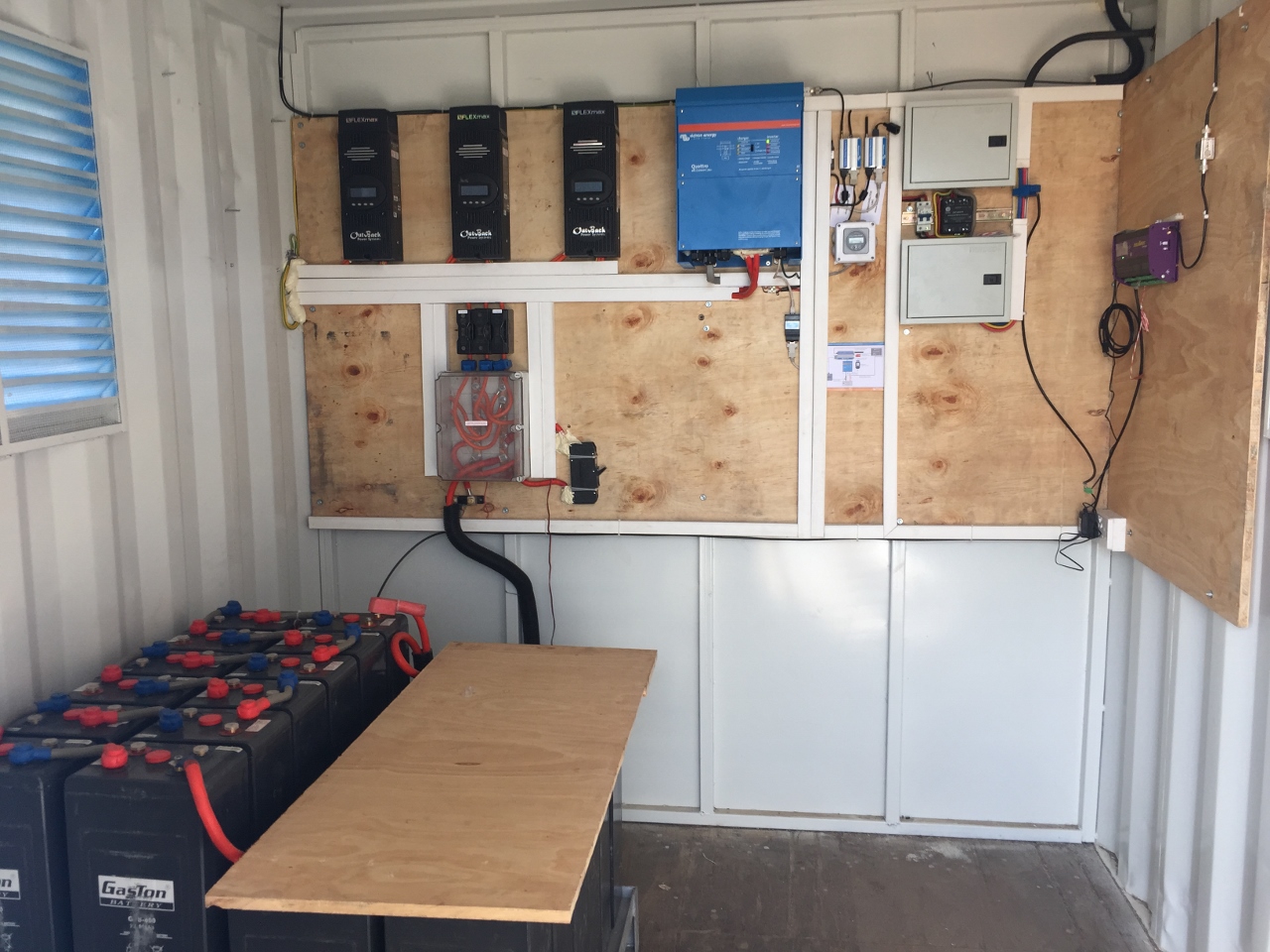
Shompole
Kajiado County, Kenya
8 kWp photovoltaic solar plan constructed in August 2015 | 38.4 kWh battery storage and one 8.2 kVA grid-tie inverter
The project is located in the south of the country in Kenyas Rift Valley. Shompole is 10km from e4D’s other project in Oloika. Both projects are located in Kajiado country, very near to Magadi town and are currently registered as one cooperative society.
The project is joint funded by Energy for Development (e4D), who provided the generation costs and civil work, and the Rural Electrification Authority (REA), Kenya, who provided the distribution grid.
Benefits to the community
- Up to 5,000 local people in the Shompole/Oloika area can benefit from electrical services. The school, health center and 20 businesses have round-the-clock stable electricity, allowing them to provide services such as food refrigeration, lighting and phone and battery charging facilities.
- Rechargeable battery packs are being sold by the Co-operative to individual households for lighting and other appliances.
- The solar plant is operated and maintained by the local Co-operative, creating employment and providing economic revenue as well as social and humanitarian benefits to the local population.
Kyamugarura
Kyenjojo District, Uganda
13.5 kWp photovoltaic solar plan constructed in August 2015 | 38.4 kWh battery storage and two 5kW inverter chargers | Upgraded to 56 kWp in 2024 | 155 kWh Lithium-ion battery | Plan for interconnection with Kanyegaramire mini-grid 3km away
The project is located in the west of Uganda in Kyenjojo district, only 5km from e4D’s other Ugandan project in Kanyegaramire market. Both projects are currently registered as one cooperative society.
The project is joint funded by Energy for Development (e4D), who provided the generation costs, and the Rural Electrification Agency(REA), Uganda, who provided the civil work and distribution grid.
Benefits to the community
- Up to 500 local people in the community can benefit from electrical services, with the eventual aim of creating a cluster of mini-grid projects in the local area.
- The school, health center and 60 businesses have round-the-clock stable electricity, allowing them to provide services such as food refrigeration, lighting and phone and battery charging facilities.
- Rechargeable battery packs are being sold by the Co-operative to individual households for lighting and other appliances.
- The solar plant is operated and maintained by the local Co-operative (registered in accordance with Ugandan law), creating employment and providing economic revenue as well as social and humanitarian benefits to the local population.
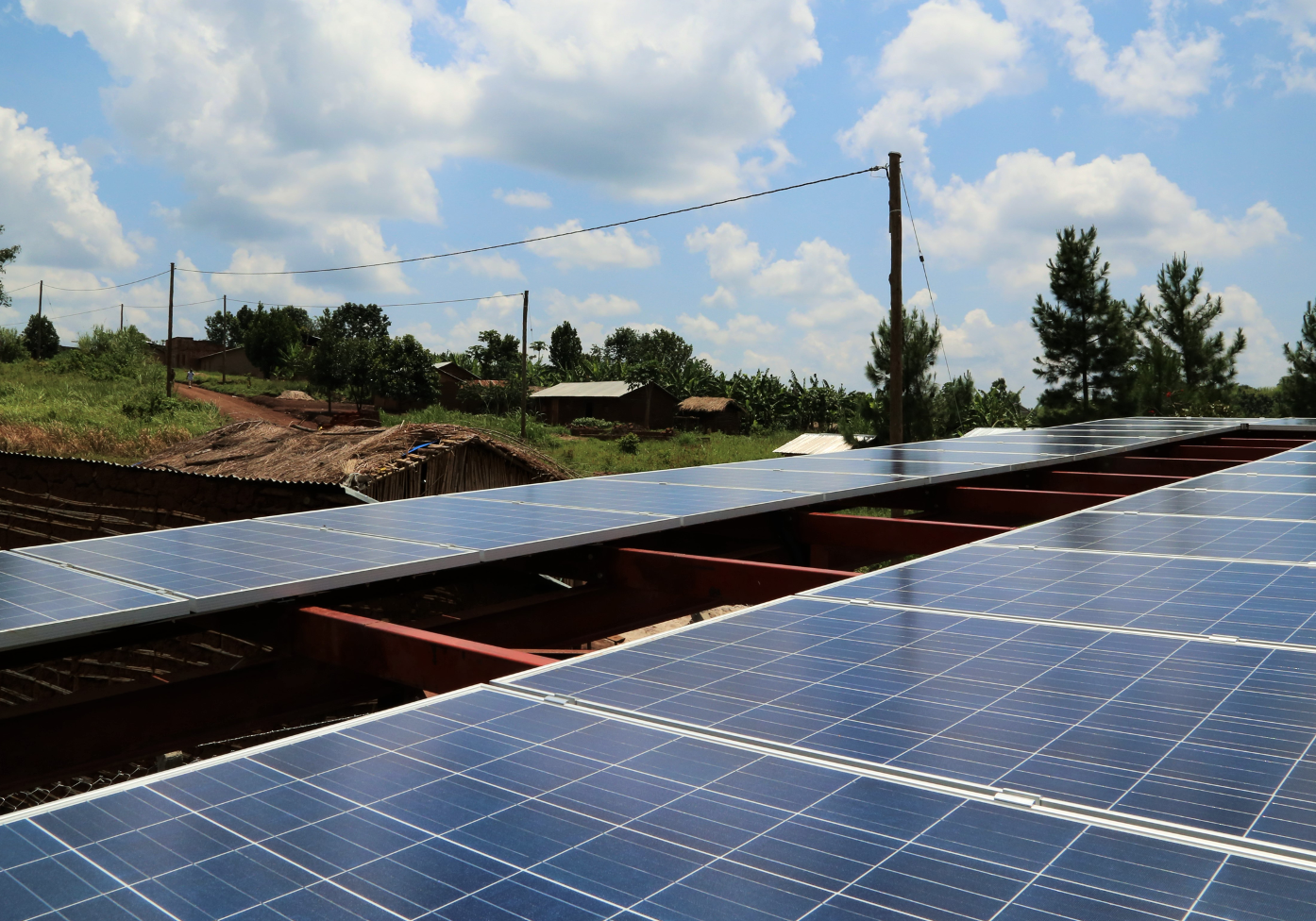

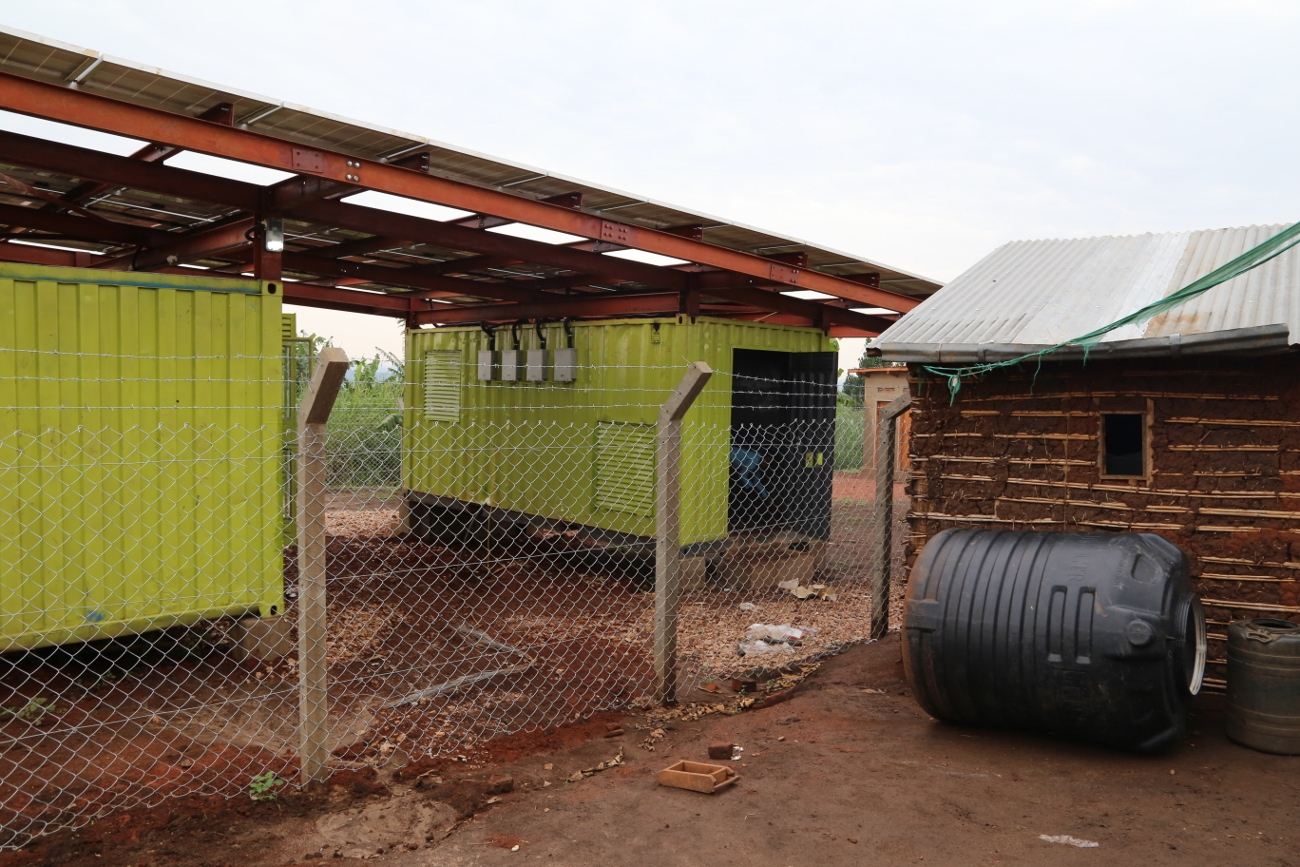

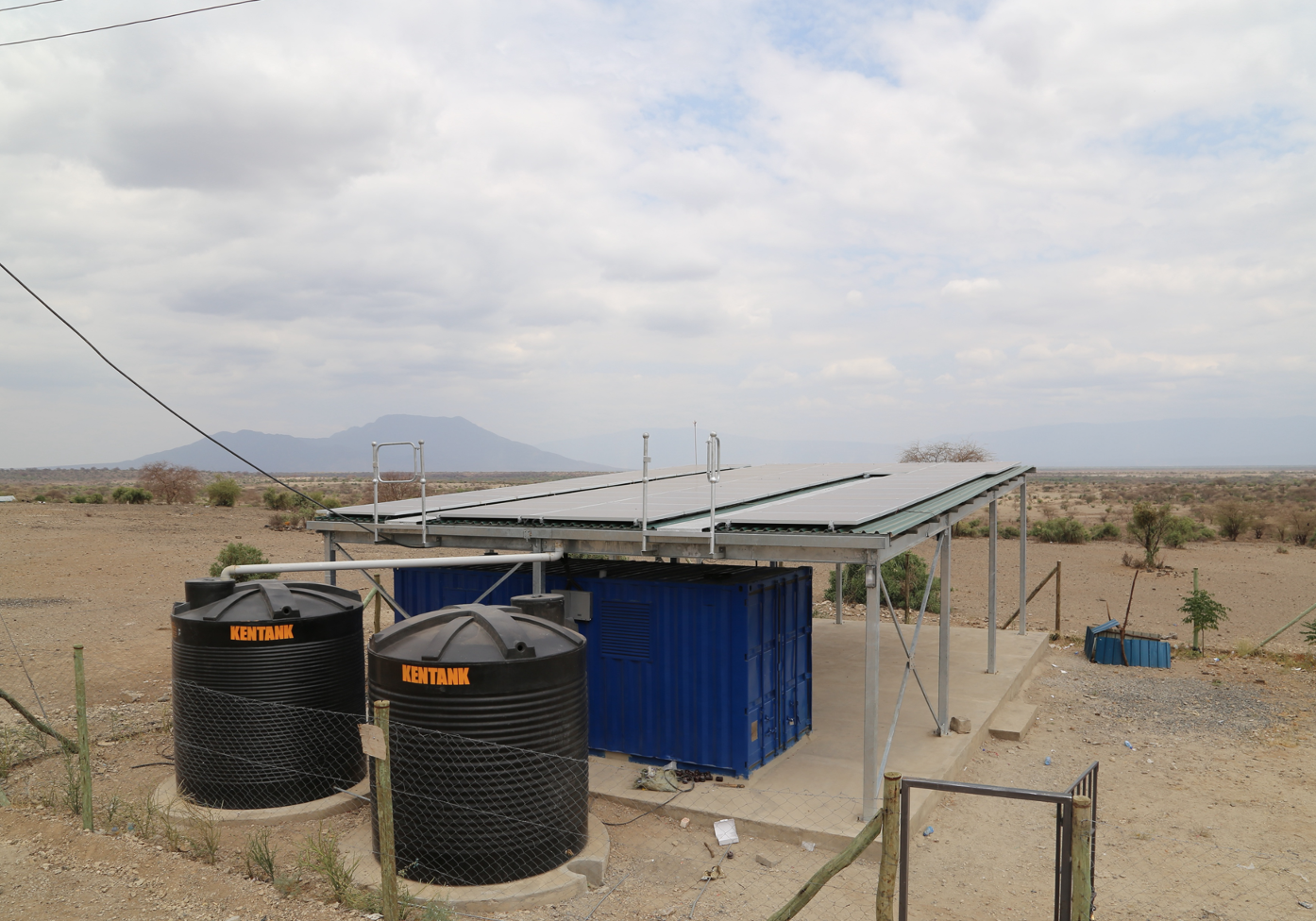
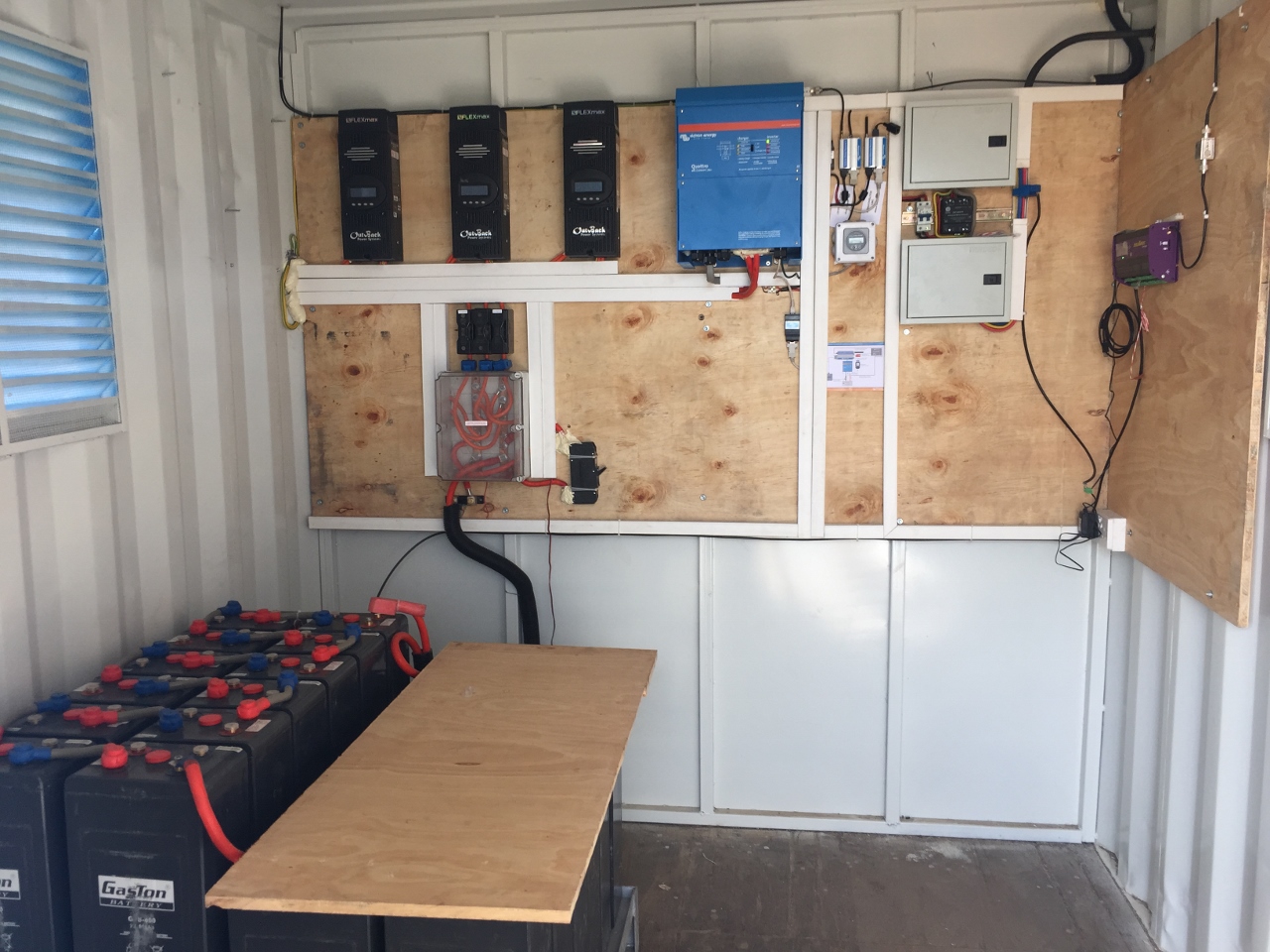
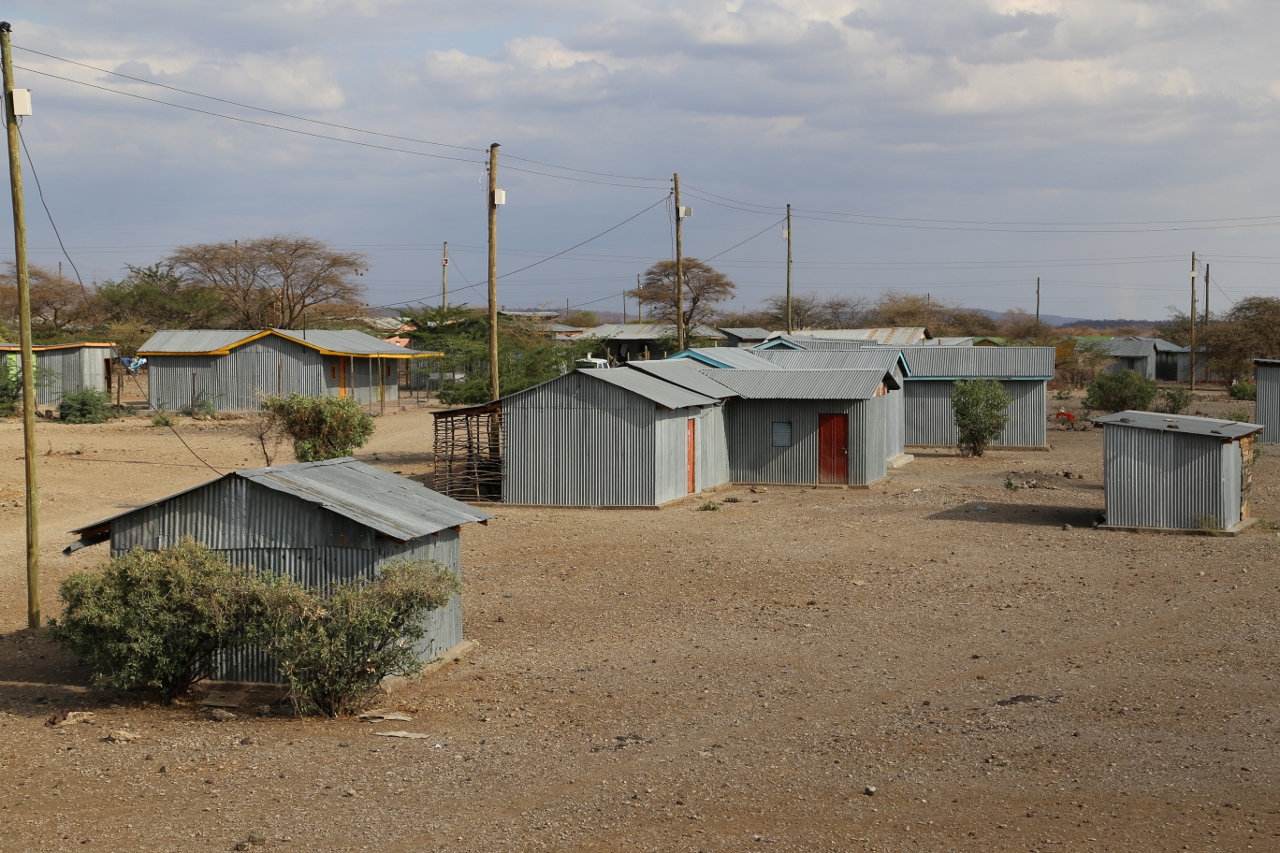
Oloika
Kajiado County, Kenya
First mini grid to be upgraded with Lithium-ion battery technology
13.5 kWp photovoltaic solar plan constructed in August 2015 | 38.4 kWh battery storage and two 5kVA inverter-chargers | Upgraded to 30 kWp in 2022 | 45 kWh Lithium-ion battery
The project is located in the south of the country in Kenyas Rift Valley. Oloika is 10km from e4D’s other project in Shompole. Both projects are located in Kajiado country, very near to Magadi town and are currently registered as one cooperative society.
The project is joint funded by Energy for Development (e4D), who provided the generation costs, and the Rural Electrification Authority (REA), Kenya, who provided the civil work and distribution grid
Benefits to the community
- Up to 5000 local people in the Shompole/Oloika can benefit from electrical services. The school, health center and over 50 businesses have round-the-clock stable electricity, allowing them to provide services such as food refrigeration, lighting and phone and battery charging facilities.
- Rechargeable battery packs will be sold by the Co-operative to individual households for lighting and other appliances.
- The solar plant will be operated and maintained by the local Co-operative, creating employment and providing economic revenue as well as social and humanitarian benefits to the local population.
Bambouti
Cameroon
6 kWp photovoltaic solar plan constructed in October 2013 | 28.8 kWh battery storage and one 5kW inverter charger
The e4D team collaborated with Cameroon Catalyst to carry out the deployment of a solar power plant in Bambouti, Cameroon. Cameroon Catalyst is a joint venture between students from the University of Southampton and the Mosame trust. The organisation was formed with the goal of funding and constructing development projects in the village of Bambouti in Cameroon
Benefits to the community
- Solar plant provides a ‘charging station’ for the community to gain access to electricity for charging devices and using small appliances.
- Rechargeable battery packs are being sold by the cooperative to individual households for lighting and other appliances.
- The solar plant is operated and maintained by the local Co-operative, creating employment and providing economic revenue as well as social and humanitarian benefits to the local population.
- The solar plant is connected and provides electricity to the local health centre, which has shown improved performance since the project was installed.
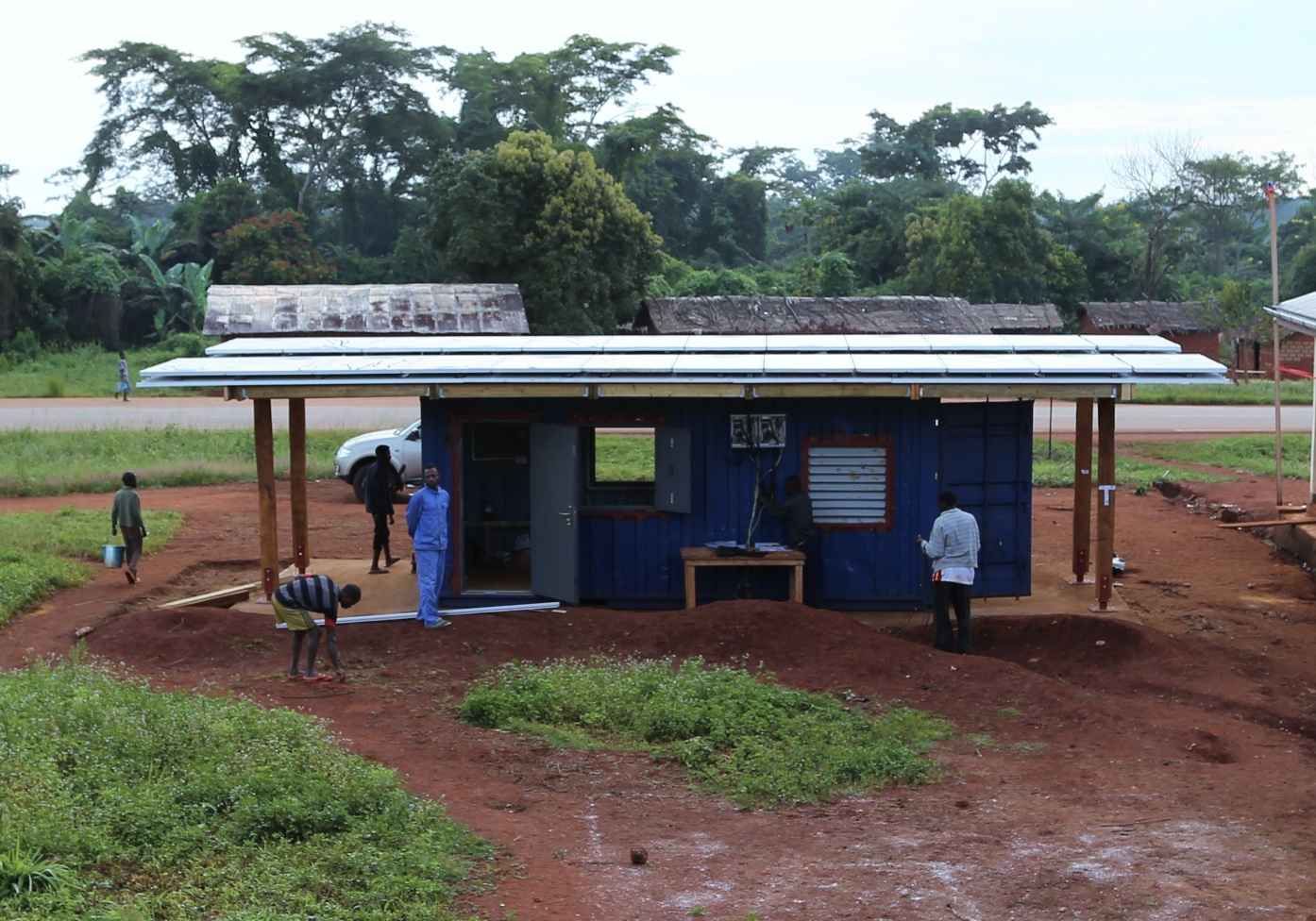

Energy for Development Updates:
ECCD exhibit at the Southampton Science and Engineering Festival (SOTSEF) 2024 2024 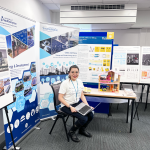
The Energy and Climate Change Division exhibited at The Science and Engineering Day held across Highfield Campus and Boldrewood Innovation Campus on Saturday 16th March 2024.
ECCD team contribute to COP 28 2023 
The ECCD team, lead by Prof. Bahaj contributed to the topic of energy access, cities and infrastructure at COP28, also contributing to the debate about ocean resources.
Lights stay on in Kitonyoni during nationwide power outage 2023 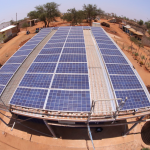
The Kitonyoni solar PV mini grid installed in 2012 by ECCD praised by the national media for providing unaffected electricity supply during Kenya’s longest blackout in recent years.
ECCD present at the International Conference on Sustainable Energy, SET 2023 in Nottingham, UK 2023 
ECCD presented 8 papers at the 20th International Conference on Sustainable Energy (SET 2023), Nottingham, UK, with Professor Bahaj also presenting a keynote address
Prof. AbuBakr Bahaj delivers keynote address at the 11th International Conference on Smart Grids (icSMARTGRID 2023) 2023 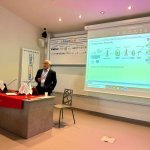
Professor Bahaj gives keynote address on “Opportunities for smarting up energy access through optimised mini grid networks” at the 11th International Conference on Smart Grids in Paris.
Solar Power Potential from Industrial Buildings and Impact on Electricity Supply in Bangladesh 2023 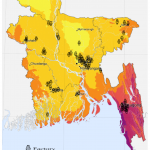
An ECCD paper which assessed the deployment of PV technology from industrial buildings in Bangladesh, and found that around 7.4 GWp of PV capacity could be achieved has, according to the journal Energies MDPI, generated a lot of interest since its publication, with results likely to influence renewable energy policy.
ECCD exhibit at The Big Sustainability Expo (Southampton) 2022 2022 
The Energy and Climate Change Division exhibited at The Big Sustainability Expo (Southampton) 2022 held at St Mary’s Stadium, Southampton on Thursday 22nd September.
ECCD present at the International Conference on Sustainable Energy Technologies (SET 2022) 2022 
ECCD presented two papers at the International Conference on Sustainable Energy Technologies (SET 2022), taking place in Istanbul, Turkey on 16-18 August 2022.
FORTIS UNUM (Stronger As One): Clustering Mini-Grid Networks to Widen Energy Access and Enhance Utility Network Resilience 2022 
FORTIS UNUM research will address in-situ mini grid system and networks connectivity and simulations in (i) isolated mini grid networks, (ii) mini grid networks connected to the national grid and (iii) multiple mini grid networks connected together and working jointly (clustered) and connected to the national grid.
Showcasing Engineering for Development 2022 
ECCD, in partnership with the Royal Academy of Engineering, hosted the inaugural Showcasing Engineering for Development one-day conference, taking place at the Royal Academy of Engineering, London, UK on March 18 from 09:30-16:00.
Training for local Engineers: Grid Connected Mini Grid, Kitonyoni 2021 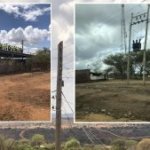
Energy for Development (e4D) team conducted a hands-on training for the young engineers of Kenya. Attendees learned how a small solar mini grid can support the near end of the utility grid while safely connected to the grid. The engineers also, learned the technological know how for grid interconnection, control strategies, grid export-import.
Why does energy demand grow at different rates in similar mini-grids? 2021 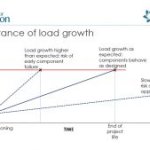
Dr Luke Blunden presented “Why does energy demand grow at different rates in similar mini-grids?” in the ‘Energy Poverty’ special session at the Evolving Cities Conference 2021, hosted in Southampton, UK from 13-15 September 2021. The research presentation focused on key aspects of electricity demand growth in off-grid mini grids. Lessons from the six operational Energy ...
e4D energy needs assessment: off-grid Sudan 2021 
Energy for Development (e4D) PhD researcher Aya Mohamed carried out extensive surveys in different off-grid locations in Sudan. Fulcrum digital survey tool was used to conduct all these surveys in July 2021. This work was supported by Higher Council for Environment and Natural Resources (HCENR), National Energy Research Center (NERC) and Ministry of Energy and ...
ECCD and Fortis Unum project collaborators present 7 papers at the 6th Africa Mini Grids Summit 2021 2021 
The Energy and Climate Change Division and Fortis Unum project collaborators presented 7 papers at the 2021 6th Africa Mini Grids Summit 2021 held virtually from 25-26 February.
Technology prospects in delivering electricity access 2021 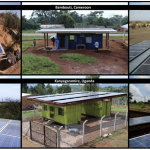
This article provides a brief outline on the issue of delivering electricity access and provides some options on how this gap can be addressed through research and development embedded in evidence and exemplar projects.
6th Africa Mini Grids Summit 2021 2021 
The 6th Africa Mini Grids Summit in Nairobi, Kenya is scheduled for the 25-26th February 2021 to discuss advancing successful mini grid and solar home systems in Africa.
ECCD contribute to UN75 Sustainable Engineering in Action book 2020 
Professor AbuBakr Bahaj and Professor Patrick James from the Energy and Climate Change Division at the University of Southampton have contributed an article Power to the People: The mini-grid solution to rural electrification for the UN75: Sustainable Engineering in Action book, which marks the 75th anniversary of the United Nations.
ECCD presents at the Beyond 2020, World Sustainable Built Environment Online Conference 2020 
The Energy and Climate Change Division presented 3 papers at the Beyond 2020 World Sustainable Conference held between 2-4 November.
5th Africa mini-grid conference 2019, Ghana 2019 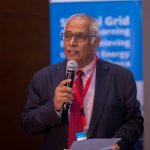
Professor AbuBakr Bahaj, head of Energy and Climate Change Division at the University of Southampton chaired the 5th Africa Mini Grid Conference held in Ghana, June 2019.
Energy for Development Event 2019 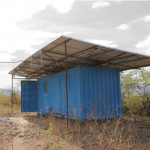
Deployed e4D mini grids supply electricity 24/7 to businesses, health centres, schools, places of worship & households. All project are cooperatives, managed by elected members of the local communities. Performances remotely monitored by the e4D team in UK. For more information please download the latest e4D leaflet, or visit our project websites on: Fortis Unum project: https://www.energy.soton.ac.uk/fortis-unum2018/ Energy ...
DC mini grids 2017 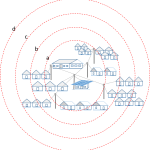
This research project, which considered Sub-Saharan Africa proposes a DCMG platform to serve rural and remote areas beyond the utility grid. Levelized cost of electricity (LCOE) from such DC mini-grids have been studied and compared with equivalent AC mini-grids and diesel grids using HOMER micro-grid simulation.
Capacity Building in Energy Access and Energy Efficiency 2017 
Newton Fund Institutional Links Grant between ECCD at the University of Southampton, and the Centre for Research in Energy Systems and Technologies (CREST) of the University of San Carlos aims to build capacity in energy efficiency and energy access.
Innovations in Solar Home Systems 2017 
This project investigated a new upgradeable SHS for rural electrification with the key objectives of designing and developing an affordable and modular pay-as-you-go (PAYG) solar home system (SHS) product line for off-grid households in Africa.
Capacity in Research and Development Embedded in Case Studies Related to Energy in the Built Environment and for Rural Electrification 2017 
This Newton Fund Institutional Links Grant between the Sustainable Energy Research Group (SERG) of the University of Southampton, and the Center for Research in Energy Systems and Technologies (CREST) of the University of San Carlos covers two areas: energy efficiency in buildings, and energy access (rural electrification). This report covers the preparatory work being done ...
University of Southampton projects on Africa rural electrification represented at 3rd International Off-grid Renewable Energy Conference 2016 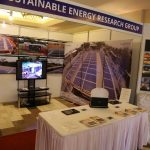
The University of Southampton’s Sustainable Energy Research Group (SERG) showcased their work in Energy for Development (e4D) at 3rd International Off-grid Renewable Energy Conference (IOREC) which took place in Nairobi, Kenya, on the 30th September and 1st October. The exhibition included displays, videos and information on the 6 mini-grid projects installed by SERG in Africa. IOREC ...
University of Southampton's Mini Grid Projects in Africa form a Central Part at 2nd African Mini Grid Summit 2015 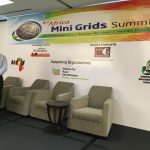
The 2nd African Mini Grid Summit was launched today in Nairobi Kenya, with the aim of sharing experiences in mini grids especially those related to low carbon renewable energy schemes in Africa. The Summit held over the period 18 – 20 November 2015, will be attended by representatives from various African governments, academia, the private sector ...
Energy for Development holds 'Development and Mini-Grids in Rural Africa' conference in Nairobi, Kenya 2015 
‘Development and Mini-Grids in Rural Africa’ was the first Energy for Development’s (e4D) dissemination conference successfully held 11 – 12 May 2015, in Nairobi, Kenya. The conference was well attended with over 110 registrants including academics, project developers, governmental officials, private sector contractors, students, project financiers as well as other stakeholders operating in the field ...
e4D – 'Development and Mini-Grids in Rural Africa' – Conference Report 2015 
‘Development and Mini-Grid in Rural Africa’ was the Energy for Development’s (e4D) first dissemination conference successfully held 11 – 12 May 2015, in Nairobi, Kenya. The conference was well attended with over 130 registrants including academics, project developers, governmental officials, private sector contractors, students, project financiers as well as other stakeholders operating in the field of ...
Development & Minigrids Rural Africa Conference 2015 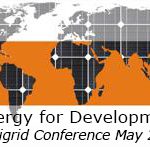
11th and 12th May 2015 As part of the Energy for Development programme, a two-day conference on “Development and Minigrids” – Rural Africa will be held in Nairobi on 11th and 12th May 2015. The purpose of the conference is to bring together active partners in the field and to disseminate the e4D work on Energy for ...
Prof Bahaj gives Lecture on Energy for Development at the Islamic Development Bank, Jeddah Saudi Arabia 2013 
On Wednesday 17th July 2013, Professor AbuBakr Bahaj, head of the Sustainable Energy Research Group, attended an joint event in Saudi Arabia on; Community of Practice on Poverty Reduction Community of Practice on Infrastructure ISDF Knowledge Initiative for Poverty Reduction Professor Bahaj gave a lecture at the event on ‘A New Approach to Energy for Development‘, speaking about the ...
Two New Villages set for Electrification 2013 
The villages of Bambouti in Cameroon and Oloika in Kenya’s rift valley are set for electrification through PV array’s by the E4D team and partners. Baseline data has been collected and the villages will undergo installation in the coming months. Oloika, Kenya On a recent trip to Kenya, the E4D team, along with members of Kenya’s Rural ...
Lecture 30th May 2013: A New Approach to Energy for Development 2013 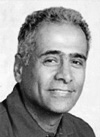
Thursday 30 May 2013 Room 1027/Building 67 Highfield Campus Doors open 17.30 Lecture begins 18.00 – no admittance after 18.00 Refreshments will be served in the foyer from 17.30 onwards Speaker: Prof. AbuBakr Bahaj, BSc, PhD, FICE, FRSA Head of Energy & Climate Change Division Faculty of Engineering and the Environment University of Southampton To date it is estimated ...
Energy for Development Network 2013 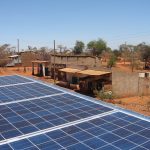
The Energy for Development Network aims to combine these three key components to develop appropriate, replicable models for energy systems that recognize the socio-economic and financial, as well as technical aspects of supplying energy.
Sustainable Thermal Energy Service Partnerships 2013 
This research will study applicable energy conversion and end-use application technologies, analyse institutional arrangements, develop business and enterprise models which needs to be implemented to promote thermal energy services in rural areas developing countries The research will analyse the respective role of government and private partners to form Public-Private-Partnership (PPP) models for energy services like ...
Energy for Development project installs 13.5 KW solar plant in Kenya 2012 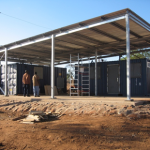
The Energy for Development project has successfully completed the installation of the 13.5 KW solar plant in the rural Kenyan village Kitonyoni. The project addresses the electricity needs of rural communities in East Africa and addresses the fundamental scientific, engineering, social and policy research issues in rural power generation and distribution, transferring knowledge between participating countries ...

